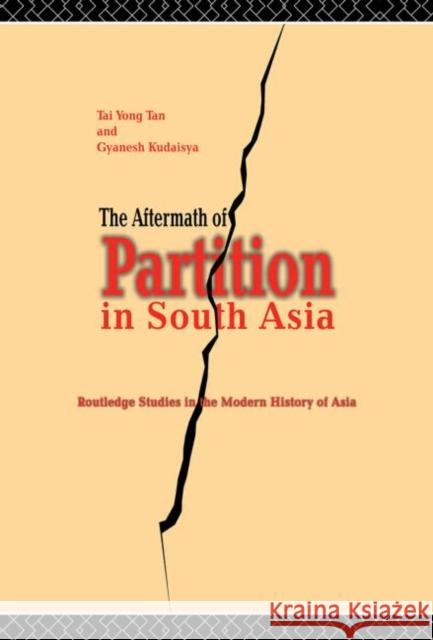The Aftermath of Partition in South Asia » książka
The Aftermath of Partition in South Asia
ISBN-13: 9780415289085 / Angielski / Miękka / 2002 / 336 str.
The partition of the Indian subcontinent in 1947 was a defining moment which has powerfully shaped the destinies of people in the South Asian region. The birth of nation-states of India and Pakistan produced reverberations which were both immediate and long-term. This book focuses on the aftermath of partition and takes stock of its long term consequences. Earlier works on partition have portrayed it as a tragic and unintended consequence of decolonisation, or subordinated it to larger dramas surrounding the advent of independence. This book sees partition in its own terms. It argues that it was not a single event, but a trigger of processes which have left a deep imprint on state and society in the region. Where other books have looked only at the causes of partition, this book broadens the horizon by looking at its effects. It is constructed around two key motifs, the dislocations and disruptions as well as the long-term impact of partition on peoples, places and institutions. The Aftermath of Partition in South Asia draws upon new theoretical insights and fresh bodies of data to historically reappraise partition in the light of its long aftermath. It uses a comparati
This book draws upon new theoretical insights and fresh bodies of data to historically reappraise partition in the light of its long aftermath. It uses a comparative approach by viewing South Asia in its totality, rather than looking at it in narrow 'national' terms. As the first book to focus on the aftermath of partition, it fills a distinctive niche in the study of contemporary South Asia.











